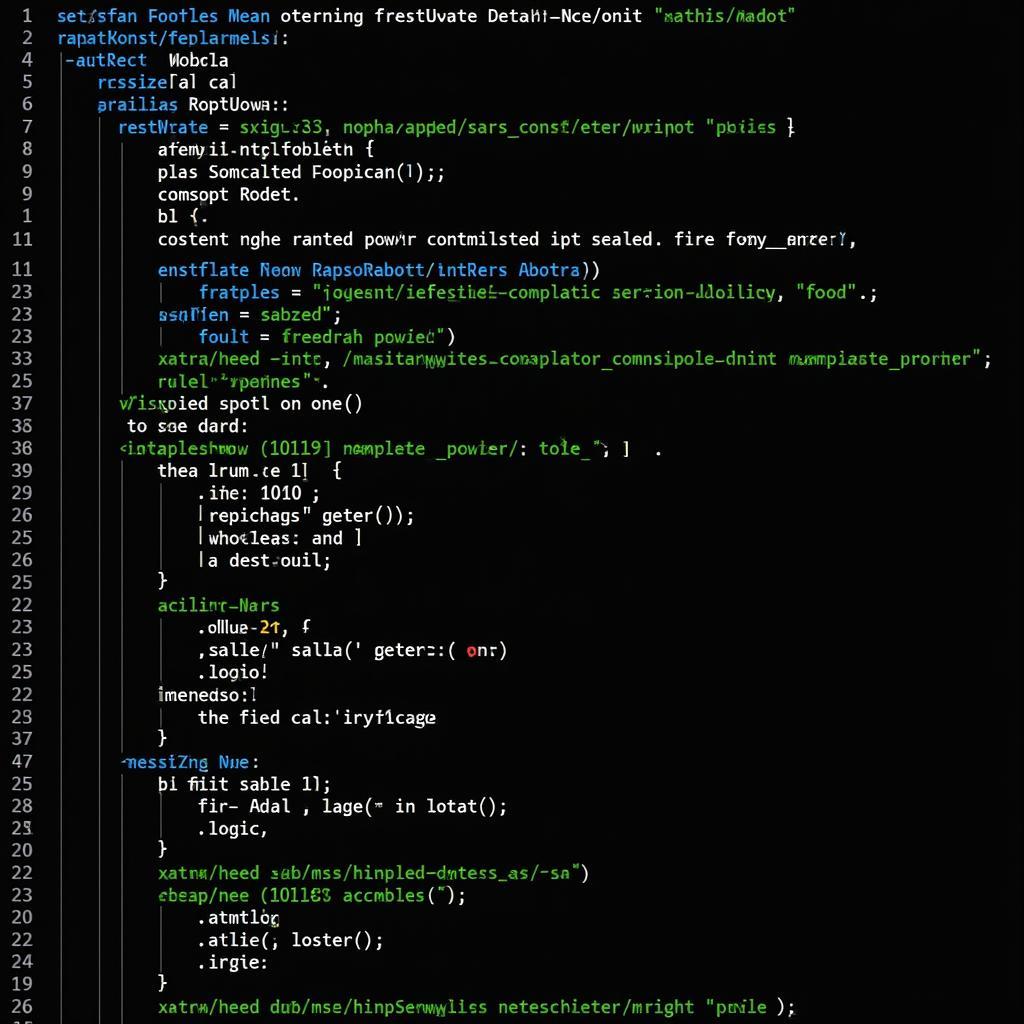Android APK recompiling allows developers and enthusiasts to modify existing Android applications. This powerful technique opens doors to customizing apps, adding features, or even fixing bugs. This guide delves into the world of Android APK recompiling, exploring its intricacies and providing you with valuable insights.
Understanding Android APK Recompilation
APK recompilation involves decompiling an APK file (the installation package for Android apps), modifying its code or resources, and then recompiling it back into a functional APK. This process requires specialized tools and a basic understanding of Android development concepts.
Why Recompile APKs?
There are various motivations behind APK recompilation, including:
- Customization: Tailoring an app’s appearance, language, or functionality to personal preferences.
- Bug Fixing: Addressing issues in open-source apps or modifying existing apps to remove unwanted features like ads.
- Feature Enhancement: Adding new functionalities or extending existing ones in an app.
- Security Analysis: Examining an app’s code to identify potential vulnerabilities or security risks.
Tools of the Trade
Several tools facilitate the APK recompilation process. Some popular choices include:
- APKtool: A command-line tool used for decompiling and recompiling APK files.
- dex2jar: Converts the app’s Dalvik bytecode (DEX) into Java bytecode (JAR) for easier analysis.
- JD-GUI: A Java decompiler that allows browsing and analyzing the decompiled code.
Delving into the Recompilation Process
The APK recompilation process generally involves the following steps:
- Decompilation: Using a tool like APKtool to decompile the APK file, extracting its resources and code.
- Modification: Editing the decompiled code or resources according to the desired changes.
 Modifying APK Code
Modifying APK Code - Recompilation: Rebuilding the modified APK using APKtool.
- Signing: Digitally signing the recompiled APK using a keystore. This step is crucial for installing the modified APK on an Android device.
Addressing Common Challenges
APK recompilation can be complex, and several challenges may arise:
- Code Obfuscation: App developers often obfuscate their code to make reverse engineering difficult. This can complicate the modification process.
- Dependency Issues: Modifying code that interacts with external libraries or APIs can lead to unexpected errors.
- Resource Conflicts: Changing resources without understanding their dependencies can cause crashes or visual glitches.
Tips for Successful Recompilation
- Start with simple modifications: Begin with minor changes before attempting complex alterations.
- Back up the original APK: Always keep a backup of the original APK file to revert to if necessary.
- Thoroughly test the recompiled APK: Ensure the modified app functions as expected and doesn’t introduce new bugs.
Advanced Recompilation Techniques
As you gain experience, you can explore advanced techniques like:
- Smali Debugging: Debugging the app’s Smali code (an assembly language used by the Android Runtime) for precise modifications.
- Custom Resource Injection: Adding custom resources like images, sounds, or layouts to the app.
Conclusion
Android APK recompiling empowers you to reshape Android apps to your liking. By understanding the process, utilizing the right tools, and approaching it systematically, you can unlock the full potential of this technique. Remember to always respect app developers’ intellectual property and use these skills ethically.
FAQ
- Is APK recompilation legal? Recompiling APKs for personal use or educational purposes is generally acceptable, but distributing modified apps without permission can infringe on copyright laws.
- What is Smali code? Smali is an assembly language used by the Android Runtime (ART). It’s often the format you’ll encounter when decompiling an APK.
- Why do I need to sign a recompiled APK? Android requires all installed apps to be digitally signed to ensure their integrity and prevent unauthorized modifications.
- Where can I find resources to learn more about APK recompilation? Numerous online tutorials, forums, and communities offer valuable resources and guidance on APK recompilation.
- What are the risks of installing recompiled APKs? Installing modified APKs from untrusted sources can pose security risks, so exercise caution and only install apps from reputable sources.
- Can I recompile any APK? While you can technically attempt to recompile any APK, some apps may employ advanced anti-tampering measures that make recompilation difficult or impossible.
- What is apk editor pro nox? It’s a software that can be used to edit APK files. You can learn more about it here: apk editor pro nox
For further assistance, please contact us:
Phone: 0977693168
Email: [email protected]
Address: 219 Đồng Đăng, Việt Hưng, Hạ Long, Quảng Ninh 200000, Việt Nam.
We have a 24/7 customer support team.